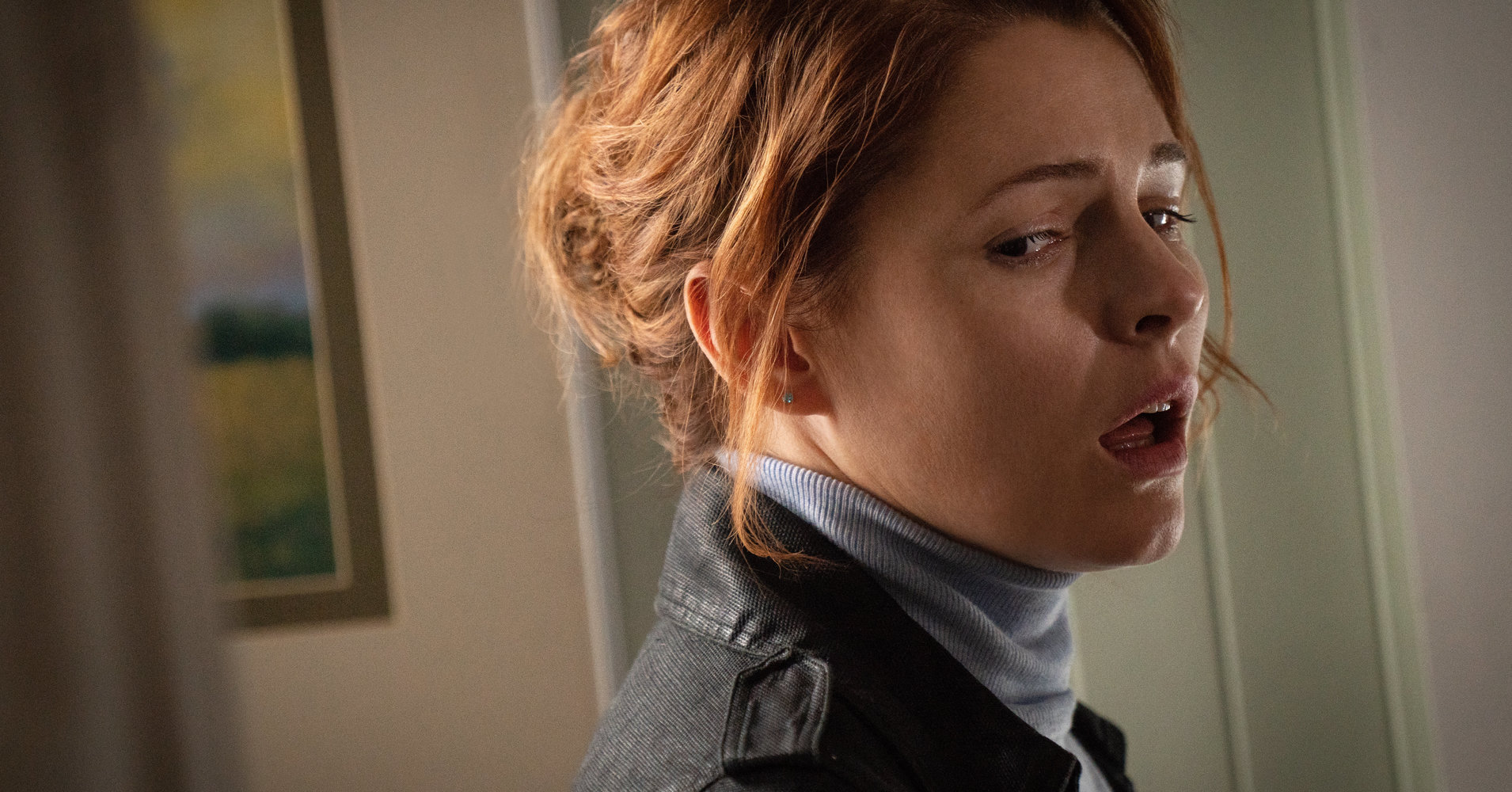[ad_1]
Stephen King’s immortal “Pet Sematary” is, to put it lightly, bleak. A “Monkey’s Paw” cautionary tale infused with parental anxiety and enough horrific imagery to disrupt sleep for weeks, the story has been adapted for the screen twice in the nearly four decades since its release — once by Mary Lambert in 1989 and now, 30 years later, by filmmaking duo Kevin Kölsch and Dennis Widmyer.
But to ask star Amy Seimetz about the story’s flirtation with the darkest parts of our psyches is to be reminded that if “Pet Sematary” is a horror movie first, it’s a darkly tinged comedy second.
“It’s really fun! It’s funny, too,” she told me, leaning forward. “The movie is all of my favorite things about drama, which is that it’s not really taking itself too seriously.”
The beats of “Pet Sematary” are well-worn but ruthlessly effective ― the Creeds, Louis (Jason Clarke), Rachel (Seimetz) and their young children Ellie (Jeté Laurence) and Gage (Hugo Lavoie), move to a bucolic Maine homestead in search of a simpler life. What they find instead is an ancient evil lurking in the periphery, a burial ground that has the power to resurrect things buried in its soil, with one very nasty catch.
This latest iteration takes a few significant liberties with its source material, culminating in a chaotic and gleefully violent third act that wholly embraces its spot in the “creepy kid” horror pantheon, complete with a final shot that’s menacing and absurd in equal measure.
Seimetz, whose work as a filmmaker includes the Floridian thriller “Sun Don’t Shine” and the fiercely efficient “The Girlfriend Experience,” is known first as a multi-hyphenate behind the camera whose self-described scrappy sensibility has aligned her with everyone from Steven Soderbergh to Barry Jenkins. But she’s always had a soft spot for horror.
“I don’t know if I was a twisted kid or they made me more twisted,” she mused while reflecting on the horror movies she hunted down in the carpeted aisles of Blockbuster. “It was probably a symbiotic relationship there.”
In anticipation of “Pet Sematary’s” return, I sat down with Seimetz to talk about graduating from R.L. Stine to Stephen King at the tender age of 8, the “Like A Prayer” video, and that time she burst into tears at a Childish Gambino concert.
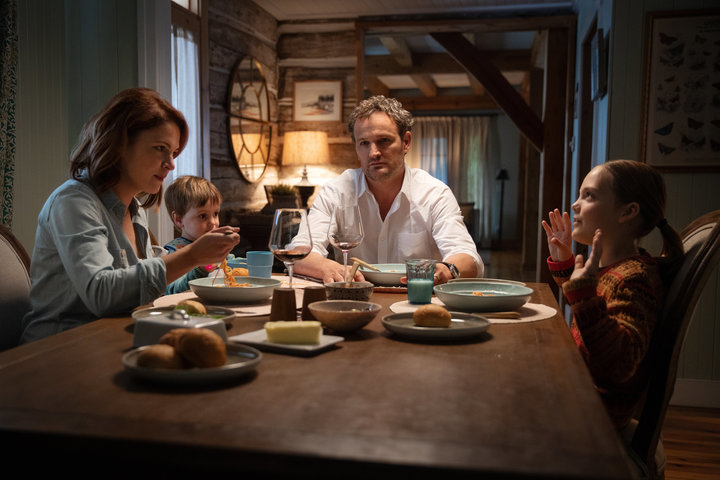
On the surface, this role is a bit of a departure for you, as a big studio movie. But this movie makes sort of beautiful sense when compared with the rest of your work.
In my own personal work, the stuff I write and the stuff I direct, there’s a lot of genre-bending. A lot of toeing the line of the pulpier aspects of horror or thriller. I’m very into taking that and bending it because I am such a huge genre fan. I actually just wrote a straight genre movie, but it’s still bending a genre in a way that makes it interesting for me.
But as an actor, it’s really fun to go onto horror movies or act in horror movies, and I’ve been in quite a few. Because genre, as opposed to drama, which is so grounded, is the ultimate “what if.” And they’re absurd, it’s fun to be able to go into these absurd sort of “what if” situations. The question of, what if there was a place in the woods where you could bring your child back or your cat back, and the logic of how to do that performance and ground it in some way is quite rewarding and fun.
It’s fun, but it’s hard work because you’re just crying and torturing yourself the whole time. [Laughs.] But that’s my kind of fun.
And that genre packaging allows you to go deep without seeming too heavy.
Exactly. You can get away with so much in genre. The other reason I love it is you kind of trick an audience into watching a giant art film. Because there’s a specific language. First, we’re gonna set it up and we’re gonna ratchet tension, and 1, 2, 3, scare! And they all know it’s coming, and then everyone knows it’s coming, but they still get scared.
As long as you still play with that language, and then subvert it as well to keep them on their toes, you can get away with these atmospheres and these tones and these weird questions and characters. You can’t really get away with that too much anymore aside from independent film, and you can’t really get away with that in straight drama. It’s not the language of drama anymore.
In the case of this movie, you’re also able to get away with some really grim stuff!
For me, the movie is all of my favorite things about drama, which is that it’s not really taking itself too seriously. Because innately, the premise is pretty absurd anyways. When you’re dealing with zombies and ghosts and all of these things, that play between seriousness and exploring the grief and taking that very seriously because that is part of the horror.
But it also takes the audience on this ride where it’s like, “OK, you thought that was bad, but it’s going to get worse.” And it goes into this territory where audiences are engaging and laughing at the pain but also how dark it gets and also screaming at it. It’s just such a cathartic roller coaster in the way that the best horror or genre films are.
I’m also realizing why I call it a roller coaster now, which is that my reaction when I’m on a roller coaster is that I just scream the entire time and then when I’m done, I just start laughing at how I was screaming the entire time.
And that’s what the audience is doing the entire time, screaming really loud and then like, laughing at themselves that a movie could do that them. Because it is kind of crazy that a movie can still do that to people. That’s what’s so fun about it.
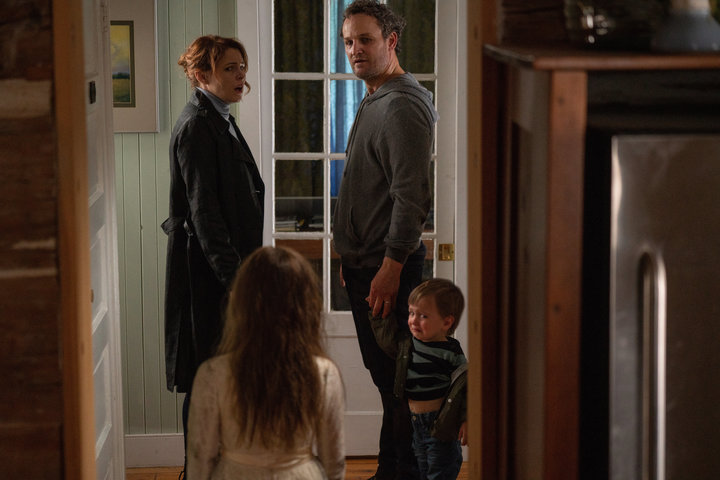
In horror, often mothers are either these monstrous forces of evil or just absolutely terrified. Rachel is neither of those things, which I just find so refreshing.
That was really important. [Kölsch and Widmyer] recognized that in exploring her, that women have existential crises and they’re not perfect moms and they carry around all of those emotions. The thing that makes them a great mom is that they’re not unleashing all of this pain all the time. That makes them complicated on screen, but that’s what moms are doing all the time, is dealing with the kids and also being like, “My pain is not this child’s pain, my pain is not my husband’s pain.”
Allowing her to have an inner life like all women have ― and obviously, we’ve all had this the whole time ― finally, people are catching up to that in female characters. Which is great; we still need a lot more work, but at the same time, to give the guys credit, they were very aware of that. Even Jeff [Buhler], the writer, was very aware that it was important to explore what she’s carrying around with her and how that affects the story, and how that adds to the overall horror or the existential question that they’re asking in the movie.
How sketched out was she in the script when you first started work on this? You’re obviously no stranger to working behind the scenes.
Nothing ever comes fully formed. [Laughs.] I always approach scripts, even when I write my own, as like a blueprint. Because it’s not the medium that people are going to enjoy it in. I never read a script and just go, “Well, that doesn’t need to be a movie.” You know what I mean? It’s written to be a movie, so it’s a framework, it’s the blueprint of the entire thing. And without a solid one, you can have a lot of problems when you’re shooting.
But I will say, the book itself is incredibly just precise in its exploration of an inner dialogue of Louis Creed and even in passages of Rachel Creed, in exploring these emotions that she has specifically in reference to Zelda.
There’s this passage where she reveals the whole story for the first time because she’s bottled it up ― I mean, [Louis] is aware that she had a sister who passed away, she just doesn’t talk about it because she doesn’t want to, she wants to ignore it and keep it away.
That’s the metaphor of the movie: These things never go away. They don’t come back as zombies, but that pain never goes away, it just keeps rearing its ugly head, pain and loss rears its head in these really strange ways, in ways that you can’t predict, and it’s not clean and it’s not something you can schedule.
I remember when I lost my dad, I was trying to schedule a weekend where I could have a nervous breakdown and then I could just be over it. [Laughs.] And then my friends were like, “No, you’re having a nervous breakdown currently.”
Stephen King wrote this passage where it shows, suddenly, the floodgates open and Rachel shares all of this information with Louis, and she can’t stop herself. She’s crying, she’s laughing maniacally, she’s angry, she’s just this full range of emotions. And then she has this tremendous amount of guilt, it’s so exactly the entire range of what you feel, and the mania of what you feel when you lose somebody, and the bewilderment that you have.
I would go back to that passage a lot and just reread it and find these nuggets of what she said. And the guys were really good about me being like, “She says this thing and I think that’s really important,” and Jason would do the same thing. Some of it made it into the movie, but also just as a motivation to bring to set and focus on these things that King had already done the dirty work on.
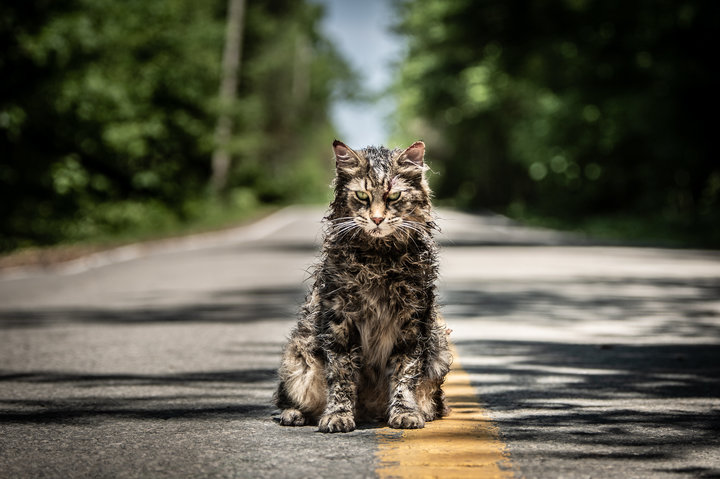
Something that really struck me about the movie is that it really successfully captures the cynicism of the novel, of the venom that Louis uses in regard to his family sometimes.
I first read it when I was 8, and that was exactly what disturbed me about it, too. Jason [Clarke] jokes with me, “Dr. Seuss wasn’t doing it for you?” [Laughs.] That’s the kind of kid I was. I was very fascinated with horror. I read R.L. Stine, and then I went to Christopher Pike, which is like Young Adult, a little sexy in there but not full-force, and then I just jumped right to Stephen King. And my parents were just excited I was reading. I don’t even think there was a “Should she be reading this?” They were like, “OK!”
If she’s gonna finish it, if she can get through it. I also wonder if my mom, it’s called Pet Sematary, I think my mom probably started reading it and was like “Let’s see if she gets through it.” Because the first half is like, a family drama.
Nothing happens, really.
Nothing, no. It’s just about Louis saying these kind of not-so-nice things sometimes. And nice things, too, about his kids and his wife. There’s one passage where he calls Ellie a bitch because she’s acting up or something, and that was the stuff for me as a kid that disturbed me, I was waiting for the zombie cat. I was like, “Where’s the zombie cat?” But that’s the stuff that stuck with me, realizing I’m not the center of your universe? I’m not the cat’s meow? [Laughs.]
You saw the opportunity, and you took it!
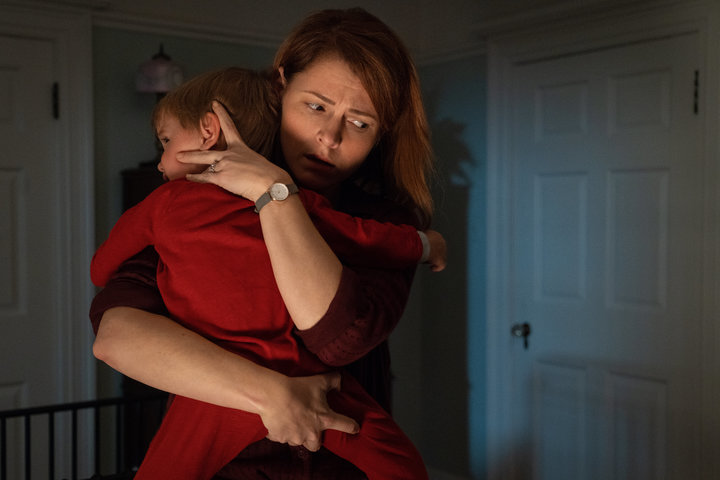
What was your relationship to the 1989 movie? It’s Mary Lambert, who is iconic in her own right, but it’s also a pretty faithful retelling of the source material.
I mean, I also love Mary Lambert because she directed Madonna videos. Mary Lambert’s videos of Madonna when I was growing up made me think that I should be a hot mess like Madonna.
What a formative cocktail of forbidden things!
Reading Pet Sematary and watching “Like a Prayer” and feeling the emotions like, “I shouldn’t be reading this, I shouldn’t be watching this.” Mary Lambert did a magnificent job of that. I like to think about it more in like a reinterpretation or reimagining of the novel and think of them as companion pieces. Because what this story is exploring is so ripe for interpretation. It’s stuff that’s not going away, it’s death.
Whether we want to talk about it or not, we’re all going to die. It’s not an if, it’s just when. There is no “Is death coming?” It’s just when. So I think going back to the source material, like all of King’s books, just going back to that. Maybe there will be another one in 30 years, but I also like the idea of reinterpreting it and changing it and playing with the prior knowledge. And that’s what’s kind of fun about it, too, is whether you’ve read the book or seen the movie, you know what “Pet Sematary” is.
Absolutely. Are we born knowing plot details about “Pet Sematary”?
It’s the Kleenex of the graveyard coming back to life movies. Or “Night of the Living Dead.” But you know what it is. You know exactly what’s gonna happen, you don’t have to have even seen Mary Lambert’s film or read the book, you know what it is.
I think what ours does so well is that it takes [that] into account. One of the first laughs in the movie is Jason picks me up and we go to the wide shot and I yell, “Church is still in the car!” And everyone, because they know the cat’s gonna die and terrorize us, is like, “Oh no, the cat’s going to be so pissed.” And it uses that prior knowledge to enhance the experience as opposed to being boring.
The way this movie plays with expectations is so satisfying.
They did a really great job. That takes a lot of skill to keep people from being like “OK, I know what’s going to happen.” And you have to change it because the unexpected is scary. You have to give them what they’re familiar with and then subvert that.
And not to go back to myself, but I know how hard it is for those guys to do that because Lodge [Kerrigan] and I did that in our season of “The Girlfriend Experience” as well, is taking this idea of prostitution. Everyone is thinking something bad is gonna happen to her. So you bring them to that point and then you subvert it somehow. And that keeps the tension going because you’re constantly thinking, so many films about escorts, there’s something bad that happens to them. So when you’re writing, using that knowledge and creating tension with that is really fun. But then subverting it and keeping them going.
I know specifically when you worked on “The Girlfriend Experience,” you often had people asking you to speak on the likability or morality of your characters. What I love about this movie is that it kind of approaches the selfish decisions these characters make with a similar lack of judgment.
It’s just the inevitable decision that was to be made.
Even in thinking about writing “The Girlfriend Experience” and the approach to it and also what they did for “Pet Sematary,” is not approaching it from a moral standpoint. For me, and I can only speak to this as a filmmaker on “The Girlfriend Experience,” but approaching prostitution not as a moral issue. I’m not trying to tell you if it’s right or wrong. It just exists. And that’s it. We’re exploring it because it just exists.
In “Pet Sematary” too, we’re not trying to say, “You should believe in God or heaven and hell.” In this movie, in this contained movie, there is just a place where you take dead animals and they come back. That’s it. It’s not trying to preach to you that there’s a heaven and hell, it’s just in this self-contained movie, this place exists. Which I think is part of what is universal about it. It’s not trying to divide anyone who doesn’t believe in God or believes in God, it’s just this contained universe in a way.
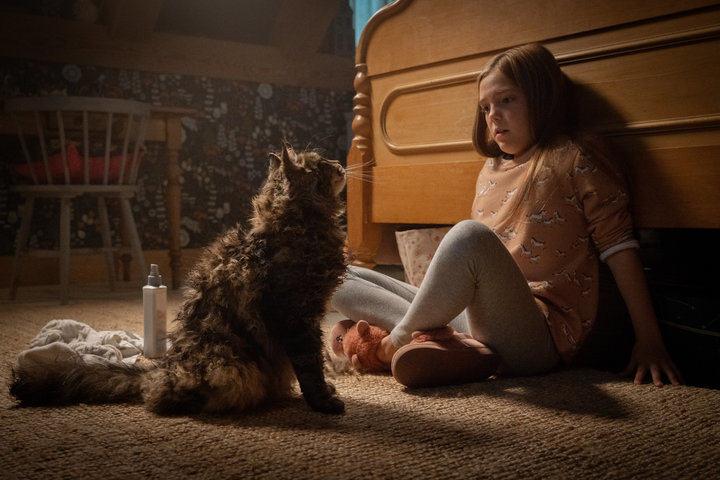
Before you go, I absolutely have to ask about directing the two episodes of “Atlanta” you did this year. They were both Van-centric episodes, which truly warmed my heart.
Zazie [Beetz] is … She’s incredible. I’m so excited she’s doing so well.
I know! I was so excited to do her episodes because I love those guys. I love all of them, they’re so wonderful and brilliant and weird. Hiro [Murai], the showrunner, and Donald [Glover] and Stephen [Glover], they’re just like weirdos, but in the best way possible. But I was so excited because she’s also a weirdo, and I was so excited to get her to come out. She’s so funny, and it was so great to play with her inner weirdo and give her the spotlight for a while.
But I loved working with them, they’re my friends, they’ve become my friends. It’s the only thing that I’ve directed that’s not my own writing and it’s the only show that I’ve agreed to do because for me, it’s the best show on television. Save my shows ― no, I’m just kidding, I truly think it is the best show on television.
The Drake episode absolutely slayed me. I remember seeing your name right after that brilliant last line and being so elated.
It was really fun. I love them. I have to say this because I just want to give Donald a shoutout. He’s so grounded and so amazing to work with. He’s so trusting, both Hiro and him really trusted me to do whatever I wanted. And they have certain things that they really wanted in there, but they were so trusting. I worked with him and he was so grounded and collaborative, but then I went with Christian [Sprenger], the DP, and Kaitlin [Waldron], the post supervisor, we all went and saw Donald perform as Childish Gambino.
We were like sitting in the front row, and we all work with him, we were with him every day for hours and hours and hours, and he’s just Donald, whatever. And he got onstage, and we were like, he’s like possessed. I just started crying, and Kaitlin put it best, when we saw him perform as Childish Gambino, she said it was like realizing your friend could fly. It was almost disturbing because he was like channeling something.
The way he moves onstage is incredible.
I’m getting goosebumps thinking about it, it was so inspiring. It also made me cry because it was my friend and I love him so much. I’m gonna get teary-eyed.
It was watching someone reach their fullest potential and giving like every fucking ounce of themselves to this performance for two and a half hours and I have no idea how he does it every fucking night. It was so incredible. Like, I’m amazed, but should I stay away from you? [Laughs.] You have superpowers!
This interview has been edited and condensed for clarity.
[ad_2]
Source link

